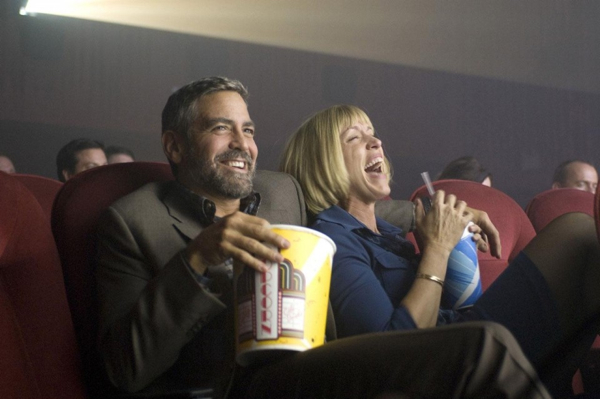Movie review by Greg Carlson
Joel Coen and Ethan Coen have for years been accused of showing contempt for their audiences, and “Burn After Reading” is likely to add new voices to the din. For many, however, the allure of the brothers has always been their idiosyncratic and intimate storytelling; they make movies for their own pleasure, viewers be damned. Working as something like a breezy counterpart to their Academy Award-winning “No Country for Old Men,” “Burn After Reading” traces the gross incompetence of a series of greedy and shallow suckers who lack both brains and heart. The Coens are always better when their movies feature protagonists worth cheering, but they have demonstrated again and again that this quality is certainly not a prerequisite of their filmmaking.
Weaving together a tapestry of intellect-challenged D.C.-area dwellers into what John Malkovich’s character Osborne Cox hilariously describes as a “league of morons,” “Burn After Reading” loosely employs espionage as the vehicle by which the Coens gleefully attack the adulterous nincompoops who form their talented ensemble. One’s enjoyment of the movie will depend largely on a tolerance for exquisite and prodigious profanity and shocking, unexpected violence. In Joel and Ethan’s world, nobody is safe from the physical horror that can be so quickly and cruelly applied by fate and circumstance.
With the exception of Malkovich’s bald CIA analyst, the Coens have a field day saddling their stars with less than flattering coiffures. Long a staple of the Coen aesthetic, outrageous haircuts often take the place of character development, and the parade of pompadours and pageboys worn by the likes of Brad Pitt and Frances McDormand delivers one of the film’s funniest running gags. George Clooney trades on his killer looks as a horny U.S. Marshal who builds sex chairs in his spare time. Tilda Swinton, as Clooney’s lover and Malkovich’s wife, has to be one of the world’s cruelest pediatricians.
As is typical of the Coens, the supporting cast of “Burn After Reading” often upstages the major players. J.K. Simmons is effortlessly funny as a CIA boss and Richard Jenkins, in probably the only sympathetic characterization in the movie, is as indispensable as ever as the gym manager who carries a torch for McDormand’s narcissistic half-wit. Raul Aranas, in a microscopic role, gets plenty of mileage repeating the line “Just lying there” in dumbfounded stupor. The Coens have made sport of transcendent moments like that one for years, and “Burn After Reading” adds several more to the long list, including a Princeton reunion sing-along that puts another knife in the heart of insufferably self-important men in suits.
With its serpentine twists and knot of relationships, “Burn After Reading” reminds us of the filmmakers’ fascination for the pulpy literature of Dashiell Hammett and Raymond Chandler. Those hard-boiled authors, whose fictions often contained a fatalistic, black-as-pitch humor congruent with the Coen style, occasionally penned stories so complex one needed a flowchart to keep everything straight. The plots of some of their books didn’t always matter as much as the style, and this same charge has been leveled at the Coens more than once. “Burn After Reading” will certainly be a tougher sell to the mainstream than “No Country for Old Men,” but stalwart Coen loyalists will find plenty to applaud.
